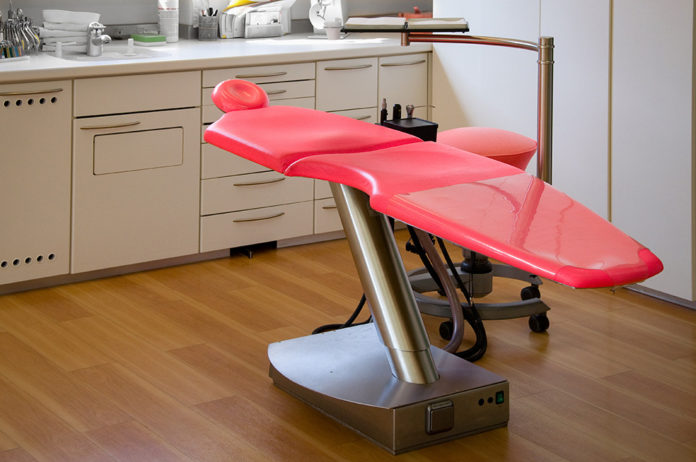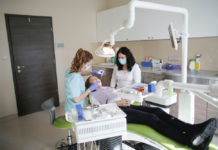An average of one in eight people suffer from tooth sensitivity, a condition that can cause sharp pain and discomfort when eating or drinking hot and cold foods and breathing in cold air during the winter.
Understanding what causes tooth sensitivity can be helpful, as can understanding the physical make up of our teeth and gums.
Our teeth have an outer protective layer of hard enamel, then an inner layer of softer dentin that covers the nerves in our teeth. Our outer tooth enamel can be worn down by years of wear and tear resulting in our teeth becoming increasingly sensitive to very hot or cold, sweet and acidic food and drink.
The inner dentin of our teeth contains tiny tubules that lead to the underlying nerves in our teeth. When hot, cold, sweet or acidic substances penetrate these tubules and reach the nerve we can feel a shock of pain radiating through our teeth. This can last for a short moment or can last for hours and create an aching pain.
Reducing tooth sensitivity
You can take steps to help reduce the risk of developing tooth sensitivity through such actions as brushing your teeth more gently. Many people believe that you need to give your teeth a good scrub with a toothbrush to get them properly clean. However, over-brushing or brushing too vigorously will not actually make your teeth any cleaner but will lead to a higher risk of tooth sensitivity.
Harsh brushing can also act to pull your gums away from your teeth, which will help to expose the nerve and increase your chances of suffering pain.
Using a soft-bristled toothbrush with a small head will enable you to reach behind your teeth for more effective brushing in tight places, but you will also need to use a gentle up-and-down sweeping motion, not from side-to-side.
Use a specialised desensitising toothpaste
You can buy desensitising toothpaste over the counter at pharmacies and supermarkets to help treat your tooth sensitivity at home. These kinds of toothpaste contain ingredients that block the transmission of sensation from the tooth to the nerve, therefore preventing pain. You may notice an improvement within a few weeks of use.
Rinsing your mouth with a good quality mouthwash can also help to remove trapped pieces of food debris that your toothbrush cannot reach. This will help to reduce the chances of plaque and tartar build-up that can cause gum recession and enamel thinning, leading to increased tooth sensitivity.
Desensitising laser treatment
By far the most effective way of getting rid of your tooth sensitivity is to have desensitising laser treatment from Glow Dental at their Battersea dental surgery.
Glow Dental use the latest cutting-edge laser therapy to treat sensitive teeth. The treatments are completely painless so you will not need to have any local anaesthesia and each treatment lasts approximately 20 minutes per tooth.
Desensitising laser treatments offer a permanent solution for your sensitive teeth issues. However, should you suffer from further gum recession then your teeth may start to suffer from sensitivity once again. This is why you should brush your teeth gently using a soft-bristled brush and use toothpaste formulated for sensitive teeth.












